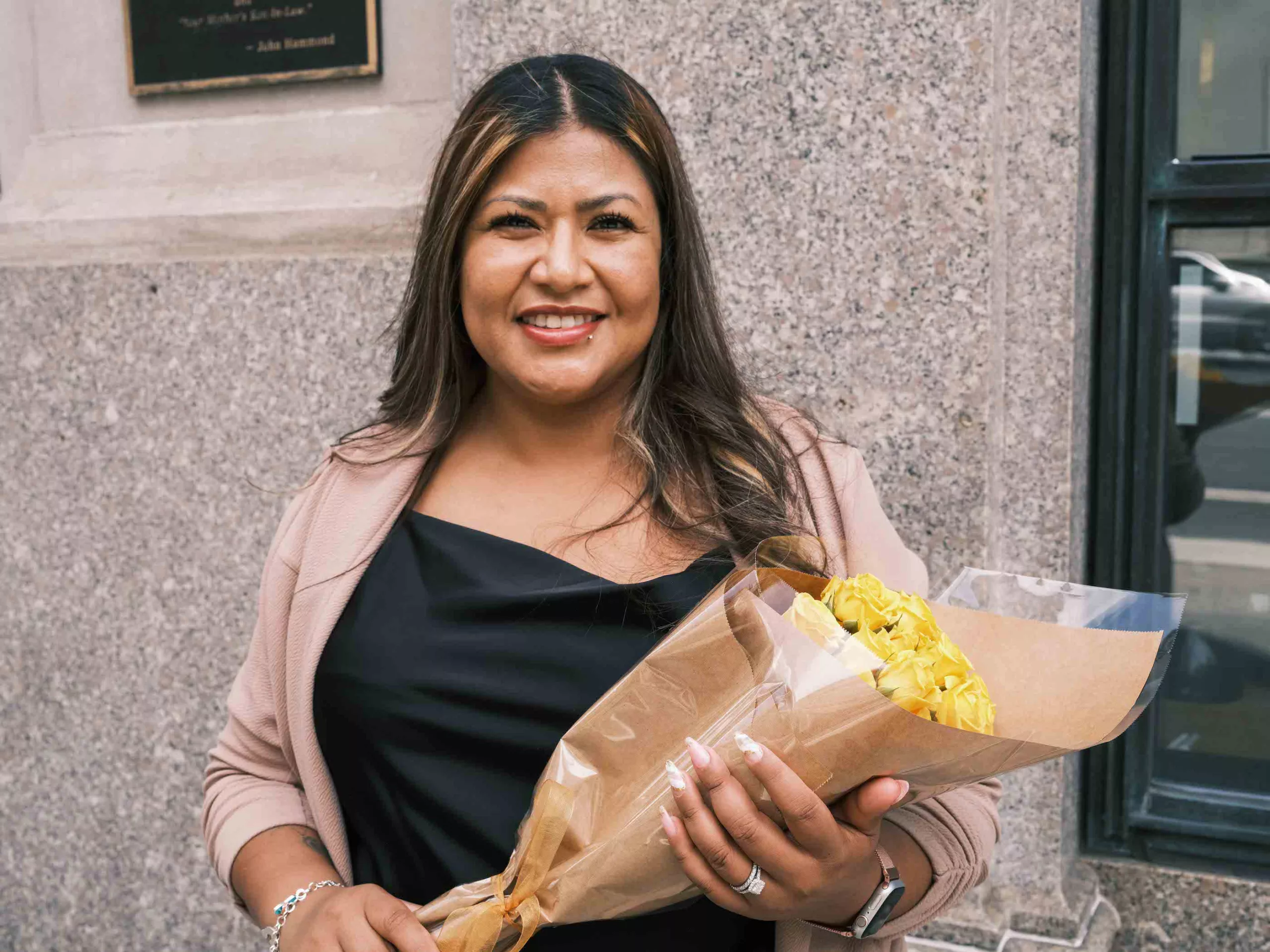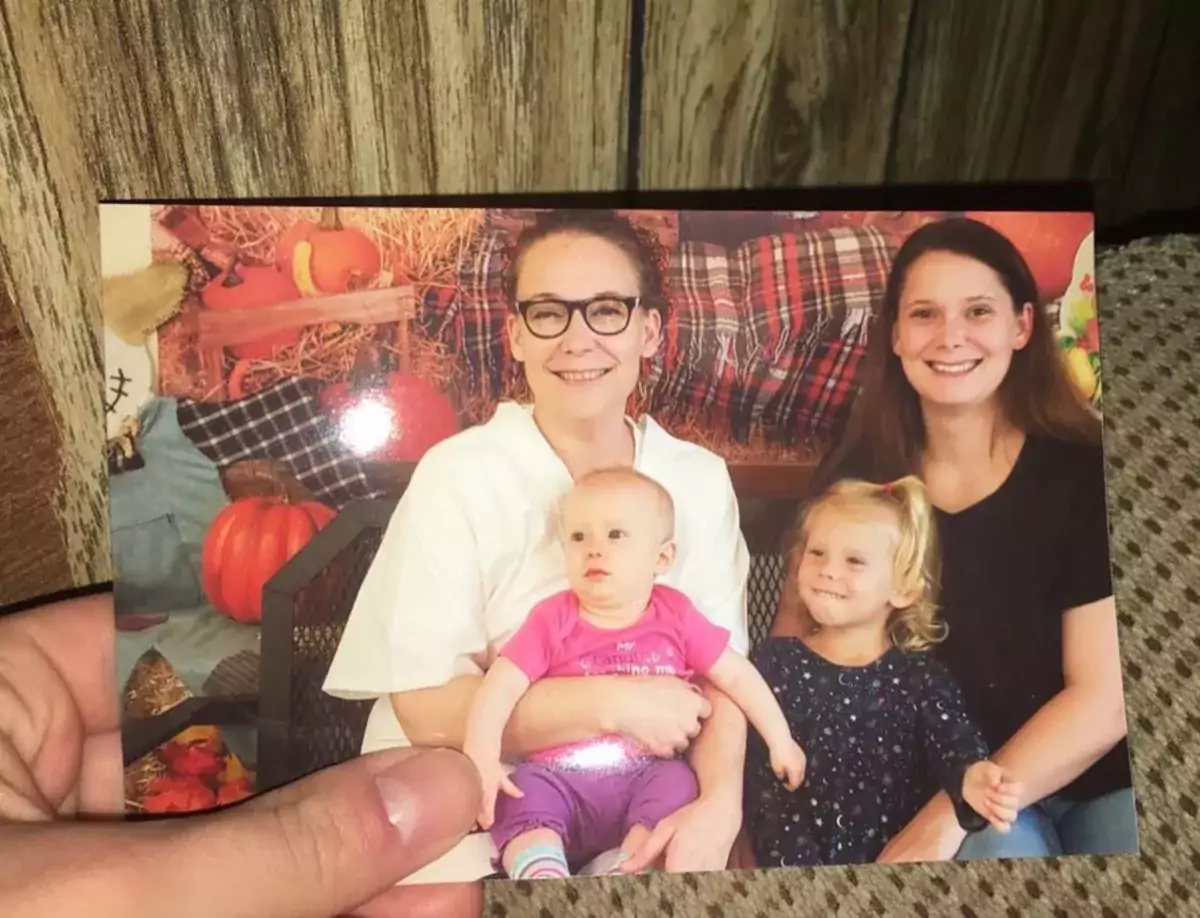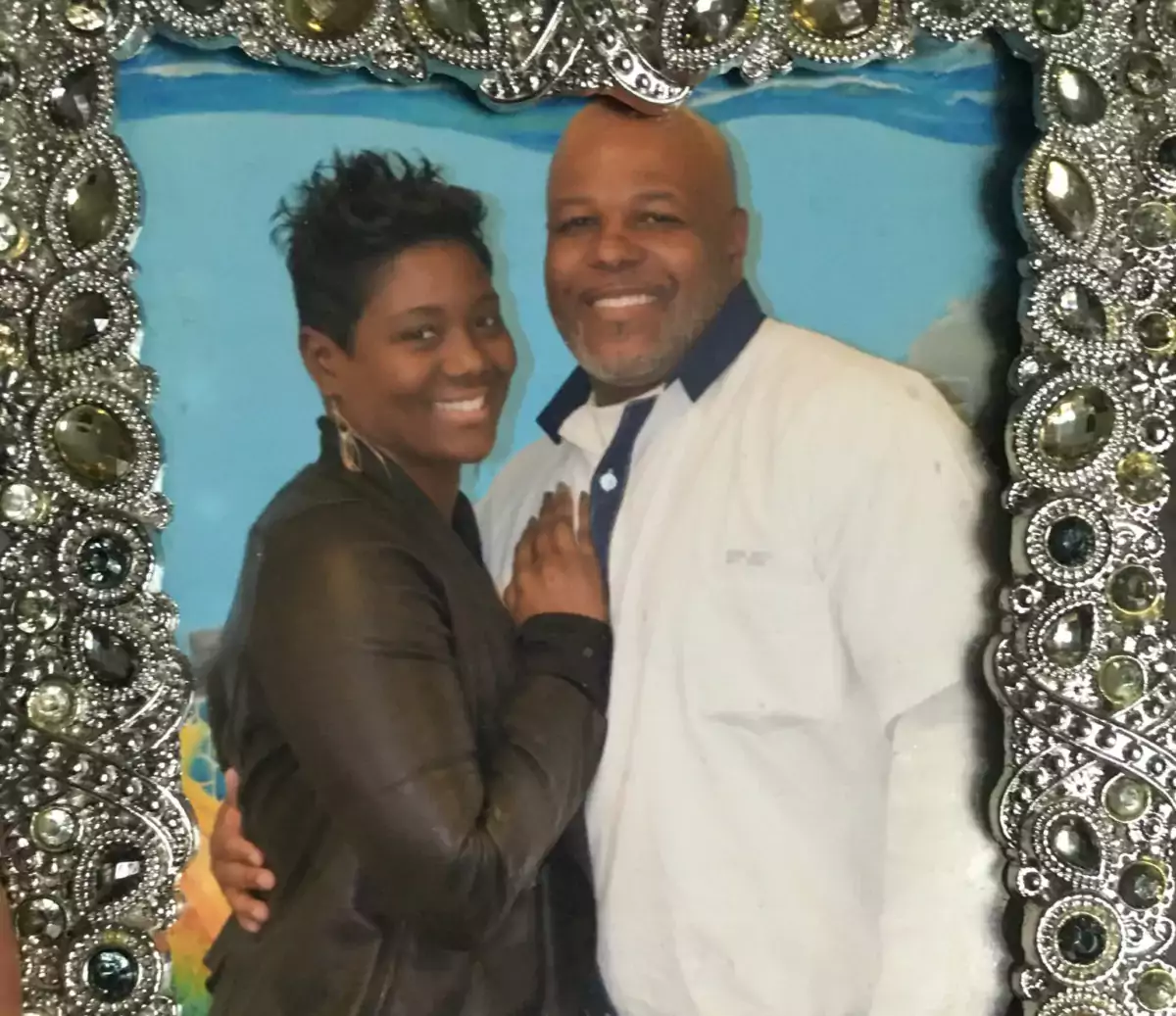Rosa Jimenez Was Exonerated of a Crime That Didn’t Occur. Others Are Still Fighting.
Jimenez is one of more than 1,300 people who have been exonerated of crimes that never occurred. Countless others remain incarcerated, despite overwhelming evidence of their innocence.

On Monday, a Texas judge dismissed all charges against Rosa Jimenez, a mother of two who was wrongly convicted of killing a child in her care more than two decades ago.
In January 2003, when Jimenez was 20 years old and seven months pregnant, she was babysitting a 21-month-old boy while watching her one-year-old daughter. The boy began to have trouble breathing, and she went to a neighbor’s for help, Jimenez would later tell authorities. Paramedics arrived and dislodged a wad of paper towels from the child’s airways. Police immediately assumed Jimenez had harmed the child, who would die about three months later. Even though Jimenez spoke little English at the time, an officer who could barely speak Spanish interrogated her for over five hours.
Jimenez maintained her innocence. She was released, only to be arrested the same night. As Jimenez awaited trial behind bars, she gave birth in shackles.
The Travis County District Attorney’s office insisted that Jimenez had killed the boy. Their case against her rested entirely on the faulty assumption that a child of that age could not ingest that amount of paper towels on their own. “There is no way that [he] put this in his mouth like—all by himself,” testified Dr. Patricia Aldridge (then Oehring), one of the state’s four medical experts.
In 2005, Jimenez was convicted and sentenced to 75 years for murder and 99 years for injury to a child.
After she was convicted, Jimenez’s case slowly snaked through the appeals courts. It was investigated by journalists, decried by medical experts, and even condemned by judges. Yet, like so many others who are wrongly convicted, Jimenez remained in prison.
Then in 2021, the Travis County District Attorney’s office—under the leadership of then-newly elected DA José Garza, a former public defender—requested Jimenez’s release, stating that she is “likely innocent.” After more than 15 years of incarceration, Jimenez was released on bond, pending a decision by the appeals court on how to proceed with her case. (Jimenez’s legal team included attorneys from the Innocence Project, where this author worked from 2007 to 2015.)
In May, the Texas Court of Criminal Appeals overturned Jimenez’s conviction. Garza’s office then moved to dismiss all charges against Jimenez, declaring in their motion to the court that she is “actually innocent.”
The legal system has finally accepted what Jimenez has maintained all along: She was not responsible for the boy’s death. But while Jimenez has been exonerated, she’s still fighting for her life. During her incarceration, she was diagnosed with kidney disease and now needs a kidney transplant.
Jimenez is one of more than 1,300 people who have been exonerated of crimes that never occurred. Countless others remain incarcerated, despite overwhelming evidence of their innocence.
Over the past few years, The Appeal has investigated the cases of several people convicted of crimes that they and experts say did not occur. All are still fighting for exoneration and remain incarcerated. Here are the latest updates on their legal battles:
Michelle Heale, New Jersey
On April 17, 2015, Michelle Heale was convicted of aggravated manslaughter and subsequently sentenced to 15 years in prison. The prosecution claimed she had shaken to death a 14-month-old in her care. Heale has always maintained that the boy’s body suddenly collapsed while she was feeding him. She called 911 and told the operator, “His whole body is lifeless.”
A paramedic arrived and took the child to the hospital. The emergency room doctor diagnosed him with pneumonia and found evidence of a possible bacterial infection. He was airlifted to the Children’s Hospital of Philadelphia, where he would die a few days later. Doctors there quickly concluded that the child had been shaken. Police zeroed in on Heale.
At the time Heale was convicted, her twins were six years old. They’re now teenagers.
“Physically being away from my children and husband is the hardest part of being incarcerated,” Heale wrote to The Appeal last year. “Nothing can replace being home and involved with them on a day to day basis.”
The latest: Questions about the validity of Shaken Baby Syndrome, or SBS, have intensified since Heale’s conviction. Last year, in a separate case, Superior Court of New Jersey Judge Pedro J. Jimenez, Jr. ruled that prosecutors could not introduce evidence of SBS, a diagnosis he said was “akin to ‘junk science.’”
After reading The Appeal’s investigation into Heale’s conviction, law professor Colin Miller, with the assistance of law student Jasmine Caruthers, began looking into her case. Miller submitted an application on Heale’s behalf to the New Jersey Attorney General’s Conviction Review Unit, asking that they “correct an injustice and set Michelle Heale free.”
The Attorney General’s office did not respond to a request for comment on the status of Heale’s application.
Heale remains incarcerated.

Amy Wilkerson, Mississippi
On July 18, 2005, Amy Wilkerson was babysitting a two-month-old boy when she said he “went limp.” She called 911, and firefighters arrived while she was performing CPR.
The next day, sheriff’s deputies visited Wilkerson’s home. Before she left with them, she said she strapped her 7-year-old daughter and 3-year-old son into her mother-in-law’s van. She hasn’t been home since.
Sgt. Ricky Jones interrogated Wilkerson and accused her of shaking the baby. Throughout the interrogation, she sobbed, repeatedly asserted her innocence, and asked for a lawyer multiple times, according to video of the interrogation viewed by The Appeal.
“It’s just me and you in this little small world right now,” Jones told Wilkerson at one point.
Finally, Wilkerson relented.
“You shook him to wake him up, is that right?” Jones asked.
“Just a little,” she said, crying.
Wilkerson has since disavowed her statement and said she made it under duress.
She was charged with capital murder, but the state offered her a deal: If she pleaded guilty, her life would be spared. Her attorney told her she’d be executed if she didn’t take the deal, according to Wilkerson’s legal filings. She pleaded guilty the next day, but she wouldn’t let her family attend her plea hearing, Wilkerson told The Appeal in 2020.
“I didn’t want them to watch me get up on the stand, to stand up and swear on a Bible, and then lie,” she said.
The latest: Multiple medical experts for Wilkerson’s appellate legal team concluded that the baby likely died from a stroke. In June, an evidentiary hearing was held on Wilkerson’s motion to toss out her conviction. The judge is not expected to rule until later this year at the earliest.
Wilkerson remains incarcerated.

Danyel Smith, Georgia
On April 29, 2002, Danyel Smith, a father of three, was driving with his two-month-old son when he said he noticed the baby appeared to have stopped breathing. He stopped the car and performed CPR, then drove to the office building where he was planning to meet up with his son’s mother, according to Smith. He carried the baby out of the car, the mother called 911, and two bystanders attempted CPR.
On May 1, police arrested Smith at the hospital. Less than a week later, his son was taken off life support and died. The prosecution claimed Smith had shaken his son, causing his death. He was convicted and sentenced to life in prison.
“My dad didn’t raise me, that motivated me even more to be there for my kids,” Smith said in a statement to The Appeal last year. “That has been robbed from me.”
The latest: Smith’s legal team with the Southern Center for Human Rights continues to battle his conviction. In May, they filed a motion accusing the Gwinnett County prosecutor’s office of unethical behavior and asked the court to remove them from the case. The judge has not yet ruled on the motion.
Earlier this year, the prosecutor offered Smith time served, meaning he’d be released from prison. But it would require him to plead guilty, according to Smith’s motion. Smith turned it down.
In the motion, Smith’s legal team asserts that the prosecutor reached out to Smith’s fiancée and requested a meeting—without Smith’s attorney present— because he felt the counsel was not adequately communicating the plea offer to Smith. When they met, the prosecutor continued to insult Smith’s lead attorney and told his fiancée false information about Smith’s right to appeal, according to the motion. In the prosecutor’s response to the court, they conceded having met with Smith’s fiancée but denied any wrongdoing.
Smith remains incarcerated.
Tasha Shelby, Mississippi
On May 30, 1997, Tasha Shelby said she was in bed with her newborn daughter when she heard a thump. She went to check on her fiance’s two-year-old son from a previous relationship and found him on the ground suffering from what appeared to be a seizure, according to Shelby. The child was rushed to the hospital but never regained consciousness.
Even though Shelby had given birth via an emergency cesarean about two weeks earlier, prosecutors claimed Shelby had shaken the boy and hit his head against an object. She was convicted of capital murder. The jury opted for life in prison instead of the death penalty.
The latest: Since her conviction, the medical examiner who ruled the boy’s death a homicide has said he made a mistake and amended the manner of death on the death certificate from homicide to accident. In 2018, he told the Court that he believed that the child fell and suffered a seizure, and that the child’s asthma had contributed to his death. Despite the medical examiner’s testimony, the Circuit Court of Harrison County denied Shelby’s motion to throw out her conviction.
In July, the Mississippi Supreme Court ordered the state to file a response to Shelby’s motion seeking post-conviction relief. Shelby also submitted a clemency petition to the governor’s office.
“The truth is there and I am innocent,” Shelby told The Appeal last year. “[The governor] has the power to give me back some of what was taken from me.”
Shelby remains incarcerated.
